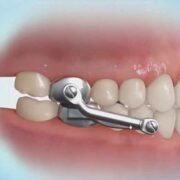There are different ways to administer medicines. The administration of medicine depends on the disease. When it comes to asthma treatment, a patient needs one of the best mesh nebulizers to inhale the medicine.
Depending on factors such as symptoms, severity, age of the patient and possible side effects, different types of medications are used for the treatment. Keep in mind that the severity of the disease changes over time.
Therefore, you must stay in touch with your doctor as you may have to change medications and dose according to the symptoms.
The following are the most common medications used for asthma treatment:
Medications for long-term asthma control
The purpose of medications of this category is to prevent asthma attacks and control chronic symptoms. This medication is taken on a regular basis. The following drugs/medications fall under this category:
- Long-acting beta agonists
- Theophylline
- Leukotriene modifiers
- Inhaled corticosteroids
- Combination of corticosteroid and Long-acting beta agonists
Rescue Medications for Quick Relief
This category is used for the prevention or treatment of an asthma attack. You need these medications to get rapid relief from symptoms. Your doctor may recommend one of the following medications:
- Ipratropium (Atrovent)
- Albuterol
- Oral and intravenous corticosteroids
Allergy-Induced Asthma Medications
Your body may be sensitive to some allergens that can trigger asthma. Doctors recommend these medications to reduce sensitivities to allergens.
- Allergy medications
- Immunotherapy
Biologics
Some underlying biological responses can lead to lung inflammation. Given with control medications, biologics are given for better asthma symptoms management. The medications fall under this category include:
- Reslizumab (Cinqair)
- Benralizumab (Fasenra)
- Mepolizumab (Nucala)
- Omalizumab (Xolair)
Medications for Long-Term Control
Whether you are experiencing symptoms or not, you need to take these medications daily.
Inhaled Corticosteroids
These drugs effectively tighten your airways and reduce swelling. The following are the most common inhaled corticosteroids:
- Ciclesonide
- Beclomethasone
- Mometasone
- Budesonide
- Fluticasone
Leukotriene Modifiers
Leukotriene modifiers neutralize immune system chemicals, leukotrienes responsible for asthma symptoms. The following are leukotriene modifiers for the prevention of symptoms for almost one day:
- Zileuton (Zyflo)
- Zafirlukast (Accolate)
- Montelukast (Singulair)
Long-acting Beta Agonists
These medications provide relief from moderate to severe asthma. Reducing swelling and opening airways for 12 hours make them effective for nighttime symptoms prevention. Salmeterol is the most common Long-acting Beta Agonists.
Theophylline
It enhances your lung’s ability to respond to irritants. This medication also relaxes your airways.
Combination Inhalers
These medications are a combination of a bronchodilator and a corticosteroid. Combination inhalers include:
- Fluticasone and vilanterol
- Mometasone and formoterol
- Budesonide and formoterol
- Fluticasone and salmeterol
Quick Relief Rescue Medications
Also known as rescue medications, these medications relax airways to open your lungs. You get relief from symptoms within a few minutes. Levalbuterol and Albuterol are two medications for quick relief.
Ipratropium
Doctors recommend these medications for chronic bronchitis or emphysema. However, Ipratropium can also be helpful in asthma attack treatment.
Oral Corticosteroids
These medications for severe asthma attacks treatment can cause serious side-effects. Therefore, oral corticosteroids are given for short-term only. Oral corticosteroids include:
- Methylprednisolone
- Prednisone
Allergy-Induced Asthma Medications
Allergy Shots
Sometimes, asthma does not come under control even after avoiding triggers. This is where allergy shots can help.
Allergy Medications
Allergy medications include decongestants and antihistamines. These medications provide relief from allergic rhinitis. Nasal sprays including corticosteroid and cromolyn can also help.
Biologics
When control medications fail to manage symptoms of severe asthma, doctors prescribe biologics.
Omalizumab
Airborne allergens triggered asthma are sometimes treated using Omalizumab.
There are many online stores selling the best mesh nebulizers. Choose the right one suggested by your doctor.















Comments